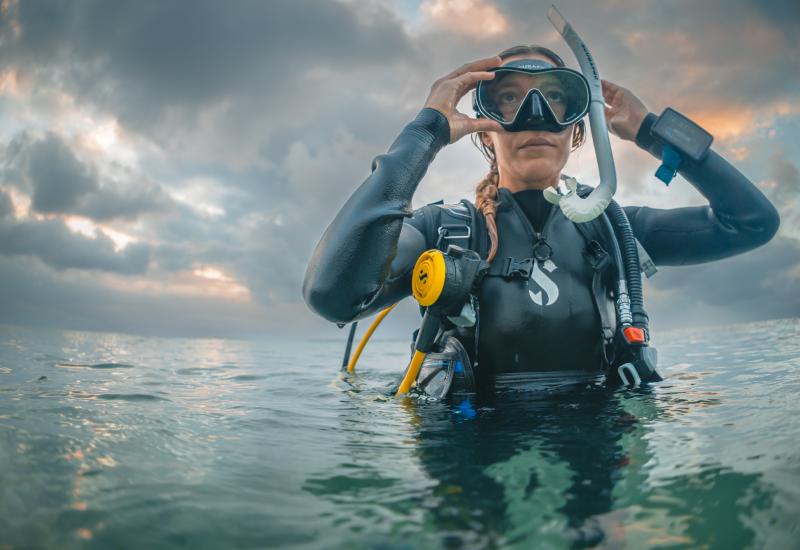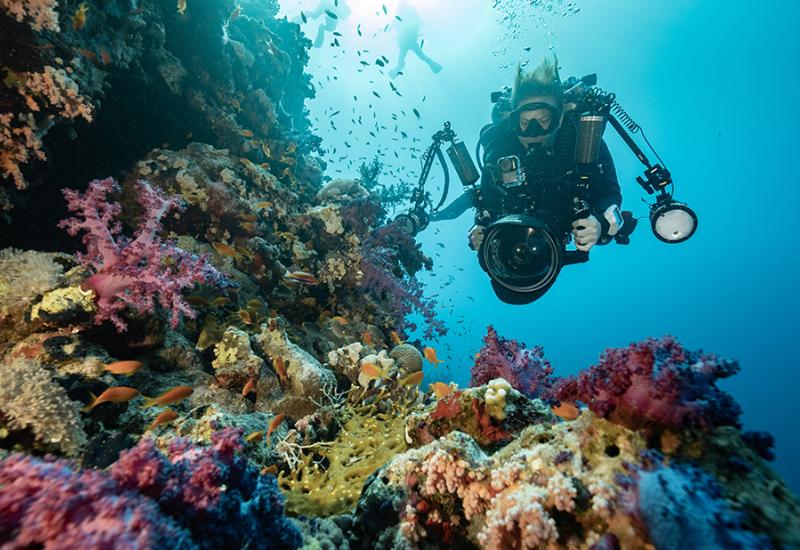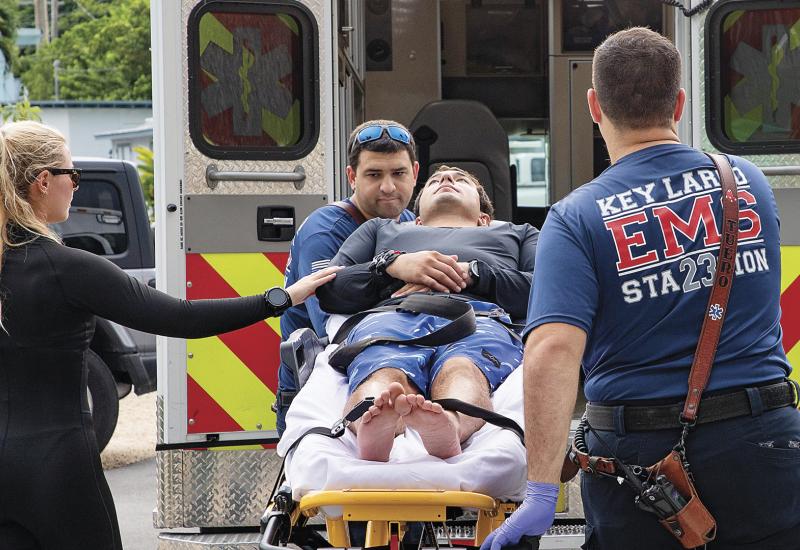Ask an Expert: Should Refresher Courses Be Mandatory for Divers?

Photo Credit: Shutterstock
Years ago, my wife and I took a trip to Grand Cayman. She hadn’t dived in years, so we arranged a refresher class for her. The instructor took her into the pool to practice basic skills before they dived the house reef. By the end of the week, she was one of the best divers on the boat, but she needed that refresher.
Although certifications last for life, all skills can become rusty with disuse, and we can forget important safety techniques. But is a refresher a matter of personal responsibility, or is it something that should be mandated?
Refresher courses should be mandatory
Several experts noted that we are required to keep current on other skill sets, and diving should be the same.
“I believe skill refreshers should definitely be mandatory,” says Michael Tippin, an SDI scuba instructor and member of the U.S. Coast Guard. “It’s a simple safety issue. Computers have changed the way we dive, and divers who haven’t learned on or been trained about computers have no idea of the do’s and don’ts. As an instructor, I am required to stay up to date on my knowledge on teaching. I don’t see why a student should be any different. Just because a diver performs a self-evaluation doesn’t mean that skills have not changed.”
“I believe that refreshers should be required. Times and techniques change — not to mention equipment — and people forget the basics,” says Phil Adcock, a diver medic, divemaster and DAN instructor.
For Wendy Quimby, a technical diver, divemaster and paramedic, the importance of keeping current for divers is like that of medical professionals. “Prove currency with ‘X’ number of dives per year, or do a refresher! That’s my opinion. I have to do refreshers and continuing education for a medical license. Diving can kill you, or someone else. Keep current or be refreshed.”

Photo Credit: Shutterstock
Only a diver can gauge his or her competency
Other experts said they agreed with the idea of refresher courses but didn’t like the idea of making them mandatory.
“It should be a personal choice,” says Tim Waldo, an independent PADI instructor and cavern diver. “Some people can be out of the water for less than a year and need a refresher course. As an instructor, I do refresher classes for the cost of a refresher book just to get divers back in the water. I don’t want the cost of a refresher course to tempt someone who really needs it to skip reviewing their skills with an instructor.”
Pete “Netdoc” Murray, who is a regional training director for NASE and an instructor for TDI/SDI, agrees: “Skills are perishable. Why put yourself at risk of an injury, or even death, by refusing to do a refresher? I don’t think it should be mandatory, but your loved ones would appreciate it.”
“Refreshers should be required for a lot of things!” says PADI course director and technical-diving instructor Darcy Kieran. “What if I keep my drivers license active but don’t drive for 10 years? I could kill myself skiing or kayaking down a river, but there has to be a limit to hand-holding. We already have more rules in scuba diving than in many other outdoor activities. It’s enough!”
Conclusion
Every time you dive, you are entering an environment using life-support equipment. Yet divers can take years off from the sport, and then get back in the water without so much as cracking a book or clearing a mask.
Refreshers should be mandatory for everyone after an extended layoff. Would you want to jump into the water with someone who hadn’t dived in years and hadn’t done a refresher?
More Expert Advice:
Should Divers Reveal their Meds? | Can You Ever Enter a Wreck Without Training? | Is it OK to Touch a Shark?
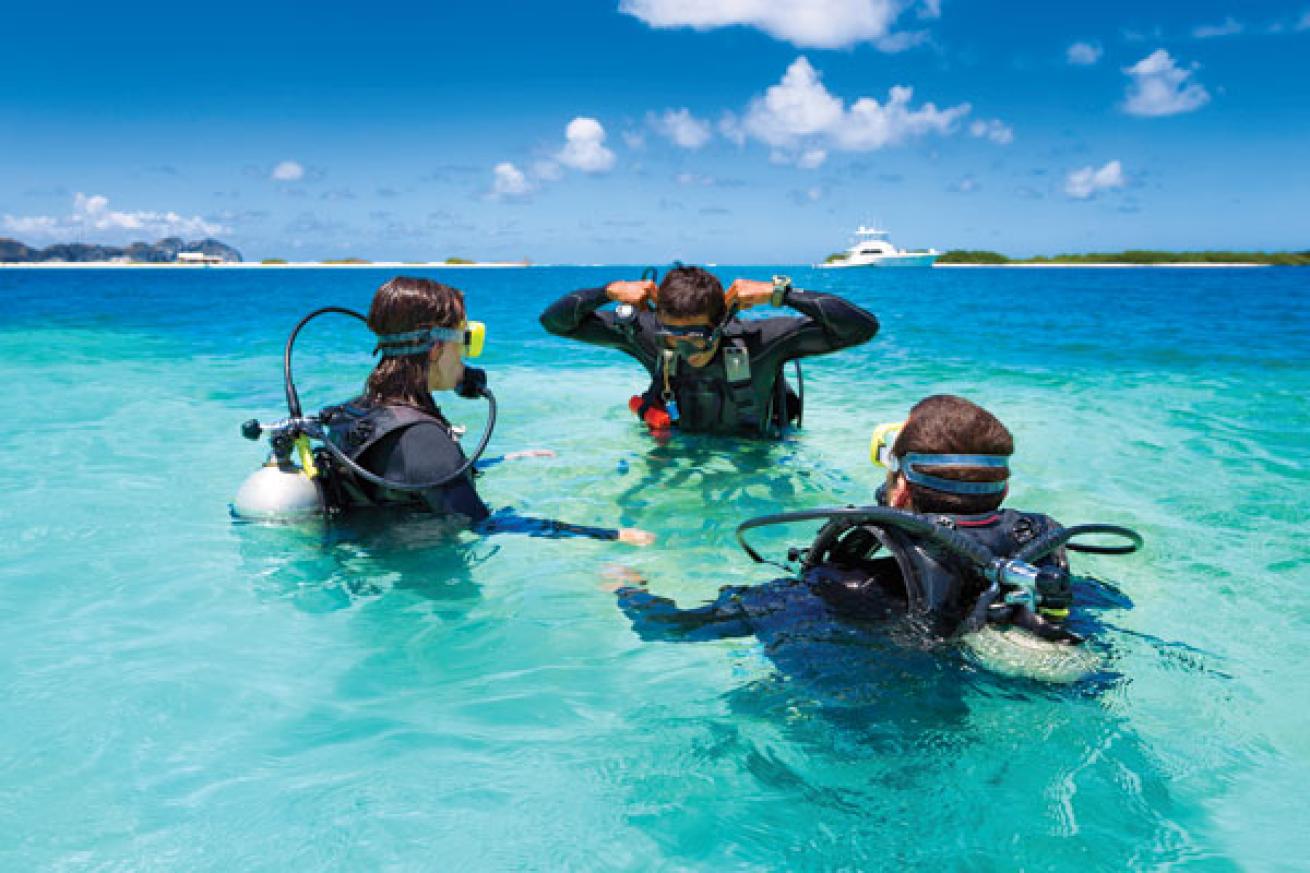
ShutterstockWhen was the last time you went diving? You might need a refresher course!
Years ago, my wife and I took a trip to Grand Cayman. She hadn’t dived in years, so we arranged a refresher class for her. The instructor took her into the pool to practice basic skills before they dived the house reef. By the end of the week, she was one of the best divers on the boat, but she needed that refresher.
Although certifications last for life, all skills can become rusty with disuse, and we can forget important safety techniques. But is a refresher a matter of personal responsibility, or is it something that should be mandated?
Refresher courses should be mandatory
Several experts noted that we are required to keep current on other skill sets, and diving should be the same.
“I believe skill refreshers should definitely be mandatory,” says Michael Tippin, an SDI scuba instructor and member of the U.S. Coast Guard. “It’s a simple safety issue. Computers have changed the way we dive, and divers who haven’t learned on or been trained about computers have no idea of the do’s and don’ts. As an instructor, I am required to stay up to date on my knowledge on teaching. I don’t see why a student should be any different. Just because a diver performs a self-evaluation doesn’t mean that skills have not changed.”
“I believe that refreshers should be required. Times and techniques change — not to mention equipment — and people forget the basics,” says Phil Adcock, a diver medic, divemaster and DAN instructor.
For Wendy Quimby, a technical diver, divemaster and paramedic, the importance of keeping current for divers is like that of medical professionals. “Prove currency with ‘X’ number of dives per year, or do a refresher! That’s my opinion. I have to do refreshers and continuing education for a medical license. Diving can kill you, or someone else. Keep current or be refreshed.”
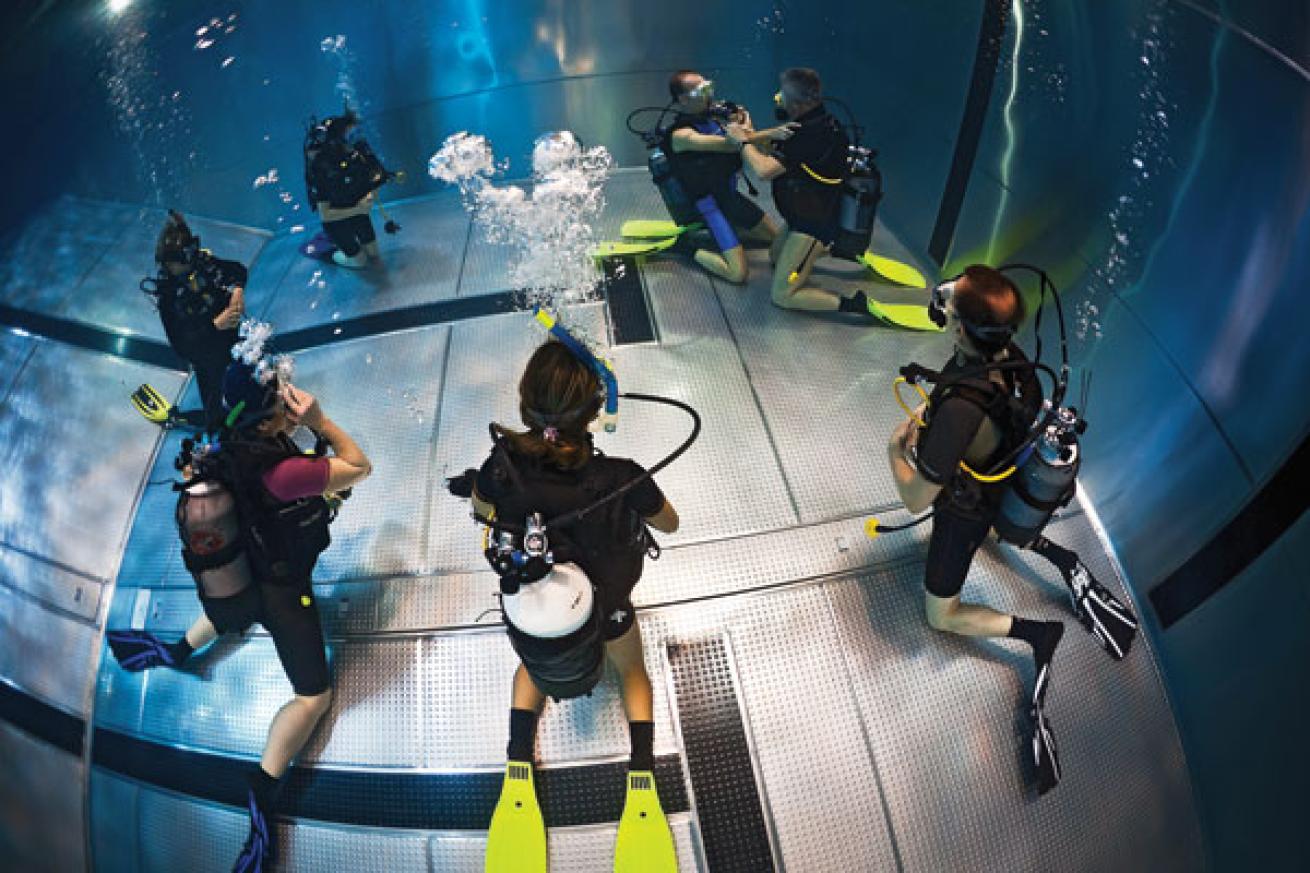
ShutterstockEvery time you dive, you are entering an environment using life-support equipment.
Only a diver can gauge his or her competency
Other experts said they agreed with the idea of refresher courses but didn’t like the idea of making them mandatory.
“It should be a personal choice,” says Tim Waldo, an independent PADI instructor and cavern diver. “Some people can be out of the water for less than a year and need a refresher course. As an instructor, I do refresher classes for the cost of a refresher book just to get divers back in the water. I don’t want the cost of a refresher course to tempt someone who really needs it to skip reviewing their skills with an instructor.”
Pete “Netdoc” Murray, who is a regional training director for NASE and an instructor for TDI/SDI, agrees: “Skills are perishable. Why put yourself at risk of an injury, or even death, by refusing to do a refresher? I don’t think it should be mandatory, but your loved ones would appreciate it.”
“Refreshers should be required for a lot of things!” says PADI course director and technical-diving instructor Darcy Kieran. “What if I keep my drivers license active but don’t drive for 10 years? I could kill myself skiing or kayaking down a river, but there has to be a limit to hand-holding. We already have more rules in scuba diving than in many other outdoor activities. It’s enough!”
Conclusion
Every time you dive, you are entering an environment using life-support equipment. Yet divers can take years off from the sport, and then get back in the water without so much as cracking a book or clearing a mask.
Refreshers should be mandatory for everyone after an extended layoff. Would you want to jump into the water with someone who hadn’t dived in years and hadn’t done a refresher?
More Expert Advice:
Should Divers Reveal their Meds? | Can You Ever Enter a Wreck Without Training? | Is it OK to Touch a Shark?


